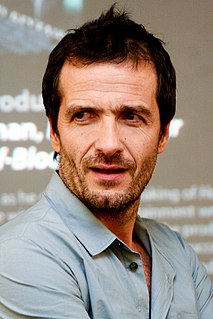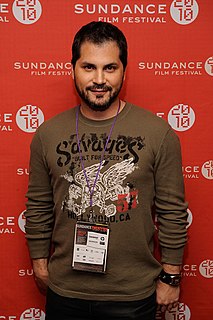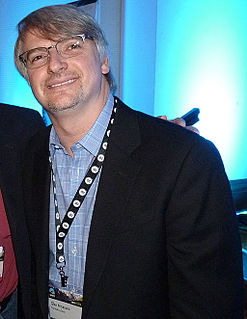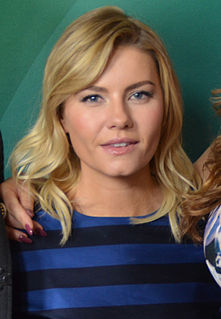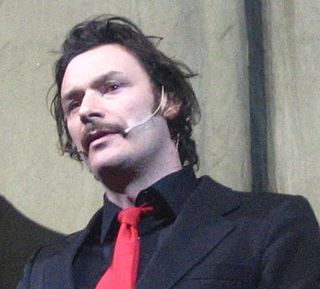A Quote by Richard Matheson
In a world of monotonous horror there could be no salvation in wild dreaming. Horror he had adjusted to. But monotony was the greater obstacle, and he realized it now, understood it at long last. And understanding it seemed to give him a sort of quiet peace, a sense of having spread all the cards on his mental table, examined them, and settled conclusively on the desired hand.
Related Quotes
The truth is, it's very hard looking back... we look at holocaust now with such knowledge and such a sense of the horror of what it was, that it's hard to believe even now that in 1930s and 1940s, before something like this had happened, that it could be impossible to imagine the extent of this horror.
The definition of horror is pretty broad. What causes us "horror" is actually a many splendored thing (laughs). It can be hard to make horror accessible, and that's what I think Silence of the Lambs did so brilliantly - it was an accessible horror story, the villain was a monster, and the protagonist was pure of heart and upstanding so it had all of these great iconographic elements of classic storytelling. It was perceived less as a horror movie than an effective thriller, but make no mistake, it was a horror movie and was sort of sneaky that way.
And still Meriadoc the hobbit stood there blinking through his tears, and no one spoke to him, indeed none seemed to heed him. He brushed away the tears, and stooped to pick up the green shield that Eowyn had given him, and he slung it at his back. Then he looked for his sword that he had let fall; for even as he struck his blow his arm was numbed, and now he could only use his left hand.
There are very few horror shows, where you have a long running arc. Most horror shows play as a sort of an anthology. Buffy - a terrific show - had the-demon-of-the-week. Twilight Zone - X Files - these things had an anthology approach. Our show is a long running drama with the same creatures every week.
A cowboy, a lawyer, and a mechanic watched Queen of the Damned,” I murmured. Warren—who had once, a long time ago, been a cowboy—snickered and wiggled his bare feet. “It could be the beginning of either a bad joke or a horror story.” “No,” said Kyle, the lawyer, whose head was propped up on my thigh. “If you want a horror story, you have to start out with a werewolf, his gorgeous lover, and a walker.
Obviously loss of family is huge and critical, but I think really it's more about losing a sense of family. The horror of that kind of incompleteness. Writing this book, I tried not to think about my father, which does no one any good fictionally. I did try to imagine not just the horror of that moment, but the horror of having witnessed it, and the lifelong void. And I think that's what's so frightening.


